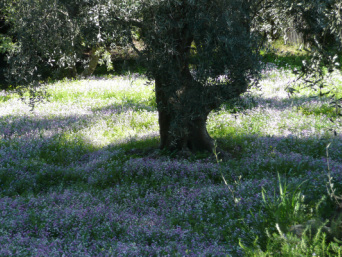
Montaigne; Wikimedia Commons
Montaigne's Essays
Book II
Michel de Montaigne, a French wise man who lived from 1533 to1592, has written a work named “Essays” in which he collects thoughts he has worked with throughout his life. These thoughts are as valid today as they were then, and I wish to share in brief form those that I have noted when reading his work. The thoughts you find here are collected from his Book II. They follow below, in the order I have noted them. As I proceed with my reading, I will add more of his thoughts.
1) Pope Bonifacius VIII entered, it is said, into his functions as a fox, behaved like a lion, and died like a dog.
2) Emperor Augustus escapes the judgment of those who think that people should behave with consistency, because there is in this man variety of actions so obvious, sudden and continuous, all along his life, that he has risen above the most arduous judges.
3) The confusion in the order and measure of sins is dangerous. Everybody gives more weight to the sins of others, and less weight to their own.
4) When the force of the wine has penetrated us, weight comes into our limbs, our legs weaken, the tongue becomes unclear, the spirit foggy, the eye vague; there remains only shouts, hickups and quarrels. (Lucretius)
5) Accused of having with a light heart destroyed a nest of sparrows and killed the small birds, he said that he was right in doing this because these birds continually accused him falsely of having killed his father. The revengeful fury of the conscience was serving as punishment.
6) It is a vicious habit of our times, and full of weakness, to take up arms only at the point of extreme necessity, and to put them down as soon as there is the least sign that danger appears to have receded. From which many disorders flow.
7) Who ever saw old age which did not revere the past and incriminate the present, accusing the world and the habits of men for their misery and sorrow.
8) Between the heavens and us there is not such a great alliance that when we die, the lights of the stars should also die. (Plinius)
9) Our appetite disdains and passes by what it has on hand, and runs after what it does not have.
10) To refuse us something is to make us want it.
11) Fortune is vain and frivolous. She glorifies some and leaves others in the shadows, more according to her whims and less according to merits.
12) Memory is a tool of great service; without it judgment would have great trouble in doing its job.
13) Constancy and attachment to your aims is difficult if you abandon your own nature and start imitating others.
1) Pope Bonifacius VIII entered, it is said, into his functions as a fox, behaved like a lion, and died like a dog.
2) Emperor Augustus escapes the judgment of those who think that people should behave with consistency, because there is in this man variety of actions so obvious, sudden and continuous, all along his life, that he has risen above the most arduous judges.
3) The confusion in the order and measure of sins is dangerous. Everybody gives more weight to the sins of others, and less weight to their own.
4) When the force of the wine has penetrated us, weight comes into our limbs, our legs weaken, the tongue becomes unclear, the spirit foggy, the eye vague; there remains only shouts, hickups and quarrels. (Lucretius)
5) Accused of having with a light heart destroyed a nest of sparrows and killed the small birds, he said that he was right in doing this because these birds continually accused him falsely of having killed his father. The revengeful fury of the conscience was serving as punishment.
6) It is a vicious habit of our times, and full of weakness, to take up arms only at the point of extreme necessity, and to put them down as soon as there is the least sign that danger appears to have receded. From which many disorders flow.
7) Who ever saw old age which did not revere the past and incriminate the present, accusing the world and the habits of men for their misery and sorrow.
8) Between the heavens and us there is not such a great alliance that when we die, the lights of the stars should also die. (Plinius)
9) Our appetite disdains and passes by what it has on hand, and runs after what it does not have.
10) To refuse us something is to make us want it.
11) Fortune is vain and frivolous. She glorifies some and leaves others in the shadows, more according to her whims and less according to merits.
12) Memory is a tool of great service; without it judgment would have great trouble in doing its job.
13) Constancy and attachment to your aims is difficult if you abandon your own nature and start imitating others.

Fredosor.com
14)It is unfitting for a man to seek publicity for his own person, unless he has achieved something in his life that others might learn from.
15)It is ordinary to see good intentions, if they are conducted without moderation, push people into producing vicious effects.
16)The weakness of our condition does that things, in their natural simplicity and purity, cannot enter into our use. We transform everything we make use of or meet. Whatever is pure and perfect, we acquire at the price of some evil.
17)Let us not seek our troubles outside ourself, it is in ourself, planted in our entrails….A very sweet medicine is philosophy; with the other medicins you feel the pleasure only after healing, philosophy pleases and heals at the same time.
18)Cowardice is the mother of cruelty. Those who fight with courage show mercy to their opponents after victory. The coward enter the scene of battle after the fight is over, and persecute the vanquished with vengeance and cruelty.
19)The wise puts limits, even on virtue.
20)When will that man know, if he is still learning?
21)The greatest vice of our nature is that our desires get constantly younger.
22)What he observes frequently does not surprise him, even if he ignores its cause; but when something happens that he has never seen, he looks at it like a wonder. (Cicero)
23)Philosophy thinks it has not employed its means badly when it has given reason the mastery of our soul and the authority to keep our appetites in check.
24)Xenophanes complained one day to Hieron, tyrant of Syracuse, that he was so poor that he could hardly feed two servants. "So what", he answered, "Homer, who was much poorer than you, nourishes more than ten thousand, even now that he is dead!"
25)Antisthenes the Stoic, being very ill, cried out: "Who will deliver me from these pains?" Diogenes, who had come to see him, presented him with a knife: "This one, soon, if you so wish." "I am not talking about my life", answered Antisthenes, "I am talking about my pains."
26)If your pains seem to diminish when you complain about them, by all means, complain!
27)Following Epicurus, pleasures are to be avoided if they are followed by greater pains, and pains are to be incurred if they are followed by greater pleasures. Any road that leads to greater health is for me neither hard nor expensive.
15)It is ordinary to see good intentions, if they are conducted without moderation, push people into producing vicious effects.
16)The weakness of our condition does that things, in their natural simplicity and purity, cannot enter into our use. We transform everything we make use of or meet. Whatever is pure and perfect, we acquire at the price of some evil.
17)Let us not seek our troubles outside ourself, it is in ourself, planted in our entrails….A very sweet medicine is philosophy; with the other medicins you feel the pleasure only after healing, philosophy pleases and heals at the same time.
18)Cowardice is the mother of cruelty. Those who fight with courage show mercy to their opponents after victory. The coward enter the scene of battle after the fight is over, and persecute the vanquished with vengeance and cruelty.
19)The wise puts limits, even on virtue.
20)When will that man know, if he is still learning?
21)The greatest vice of our nature is that our desires get constantly younger.
22)What he observes frequently does not surprise him, even if he ignores its cause; but when something happens that he has never seen, he looks at it like a wonder. (Cicero)
23)Philosophy thinks it has not employed its means badly when it has given reason the mastery of our soul and the authority to keep our appetites in check.
24)Xenophanes complained one day to Hieron, tyrant of Syracuse, that he was so poor that he could hardly feed two servants. "So what", he answered, "Homer, who was much poorer than you, nourishes more than ten thousand, even now that he is dead!"
25)Antisthenes the Stoic, being very ill, cried out: "Who will deliver me from these pains?" Diogenes, who had come to see him, presented him with a knife: "This one, soon, if you so wish." "I am not talking about my life", answered Antisthenes, "I am talking about my pains."
26)If your pains seem to diminish when you complain about them, by all means, complain!
27)Following Epicurus, pleasures are to be avoided if they are followed by greater pains, and pains are to be incurred if they are followed by greater pleasures. Any road that leads to greater health is for me neither hard nor expensive.